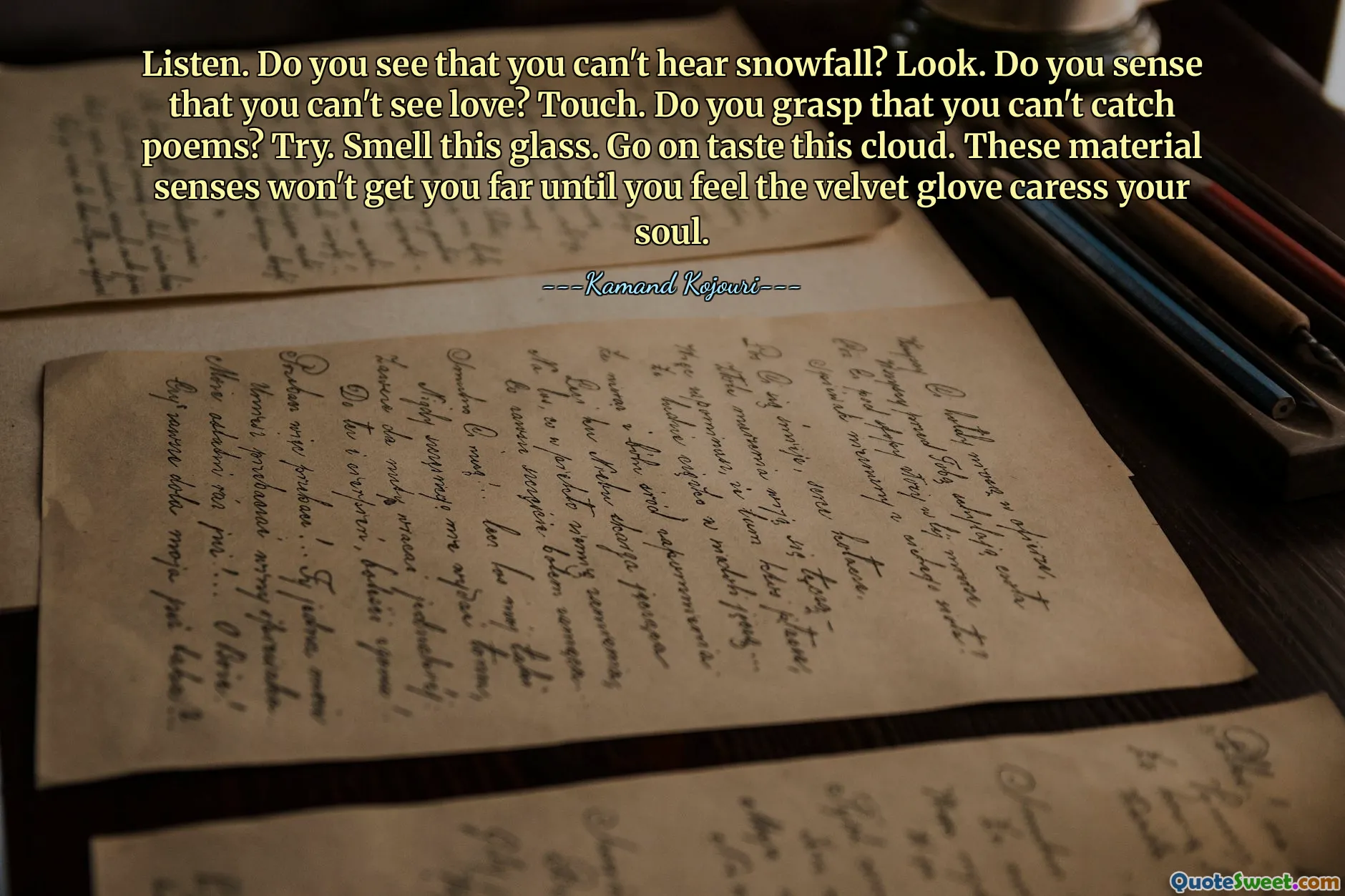
Listen. Do you see that you can't hear snowfall? Look. Do you sense that you can't see love? Touch. Do you grasp that you can't catch poems? Try. Smell this glass. Go on taste this cloud. These material senses won't get you far until you feel the velvet glove caress your soul.
This quote eloquently invites us to explore the limitations of our physical senses and points towards a deeper, more intrinsic form of perception. Kamand Kojouri masterfully contrasts the sensory experiences — listening, looking, touching, smelling, tasting — with intangible phenomena like snowfall's sound, the sight of love, or catching poems, emphasizing that these cannot be fully perceived through our material senses. It’s a profound reminder that some realities or truths exist beyond the measurable and tangible.
The final lines encapsulate this beautifully, suggesting that it’s not the external sensory input alone that defines our understanding or experience. Rather, it’s the internal, soulful connection — “feel the velvet glove caress your soul” — that allows for genuine comprehension and emotional resonance. This encourages introspection and hints at the importance of empathy, imagination, and emotional intelligence. These nuances cannot be picked up through mere physical interaction with the world around us but require an inner sensitivity and openness.
The metaphorical imagery imbues the quote with a lyricism that touches both the intellect and the emotions. It reminds us that poetry, love, and the essence of life often unfold in realms that transcend what our physical senses can capture. Embracing this broader perspective can enhance our appreciation of life’s mysteries and deepen our connection to ourselves and others. Kamand Kojouri’s words serve as a gentle but powerful invitation to look beyond the obvious and to cultivate a richer sensory and emotional experience of existence.











